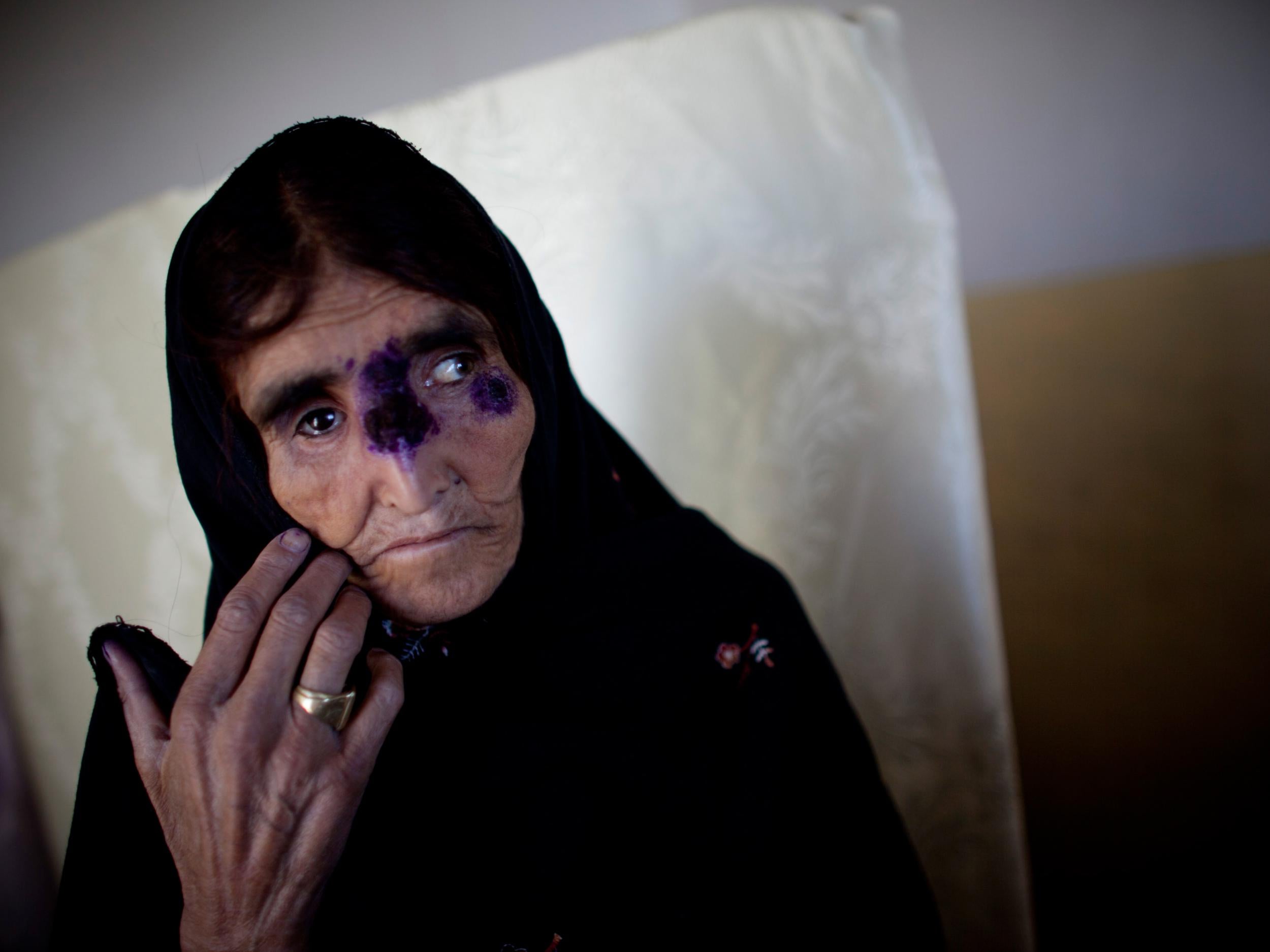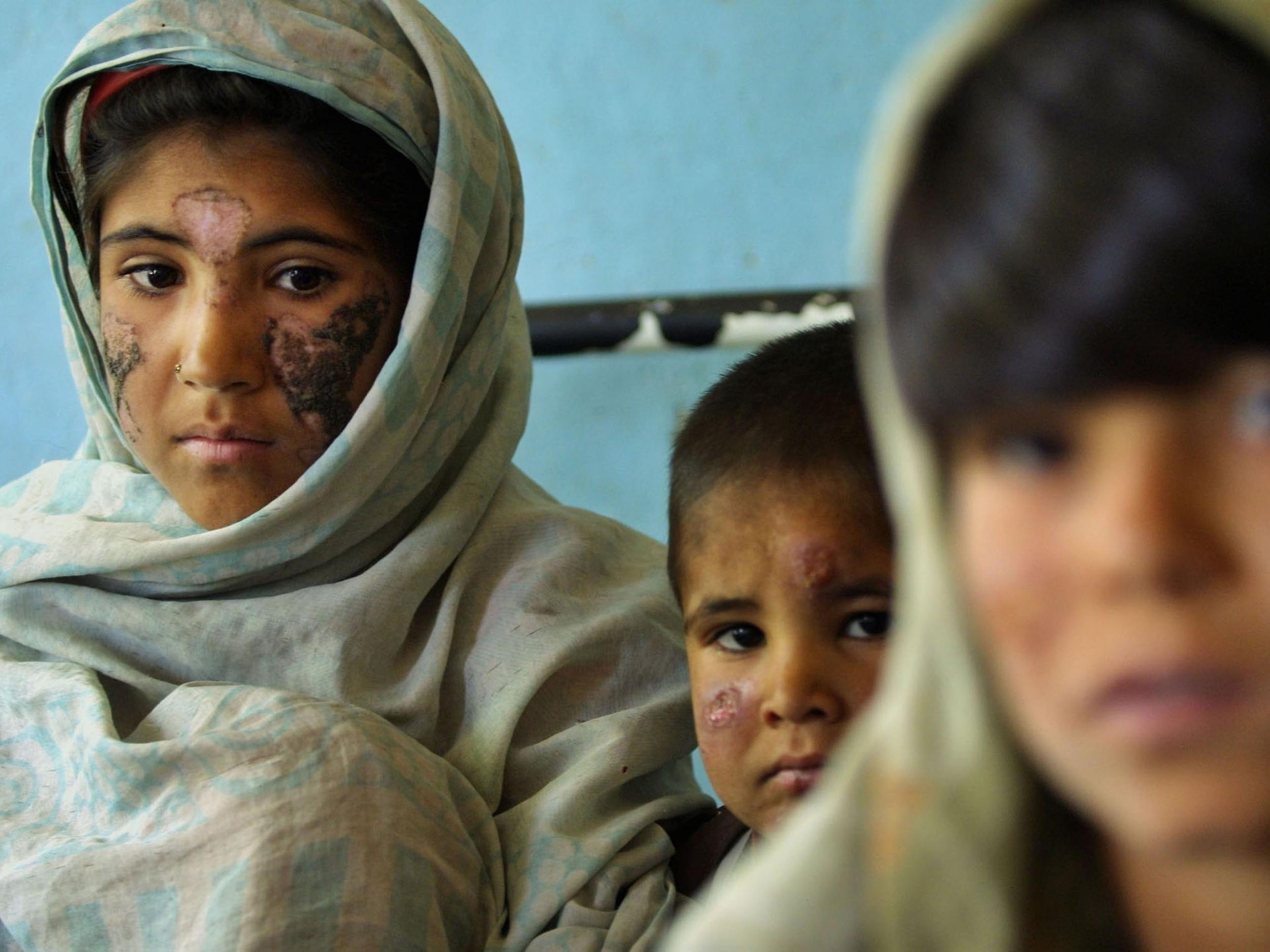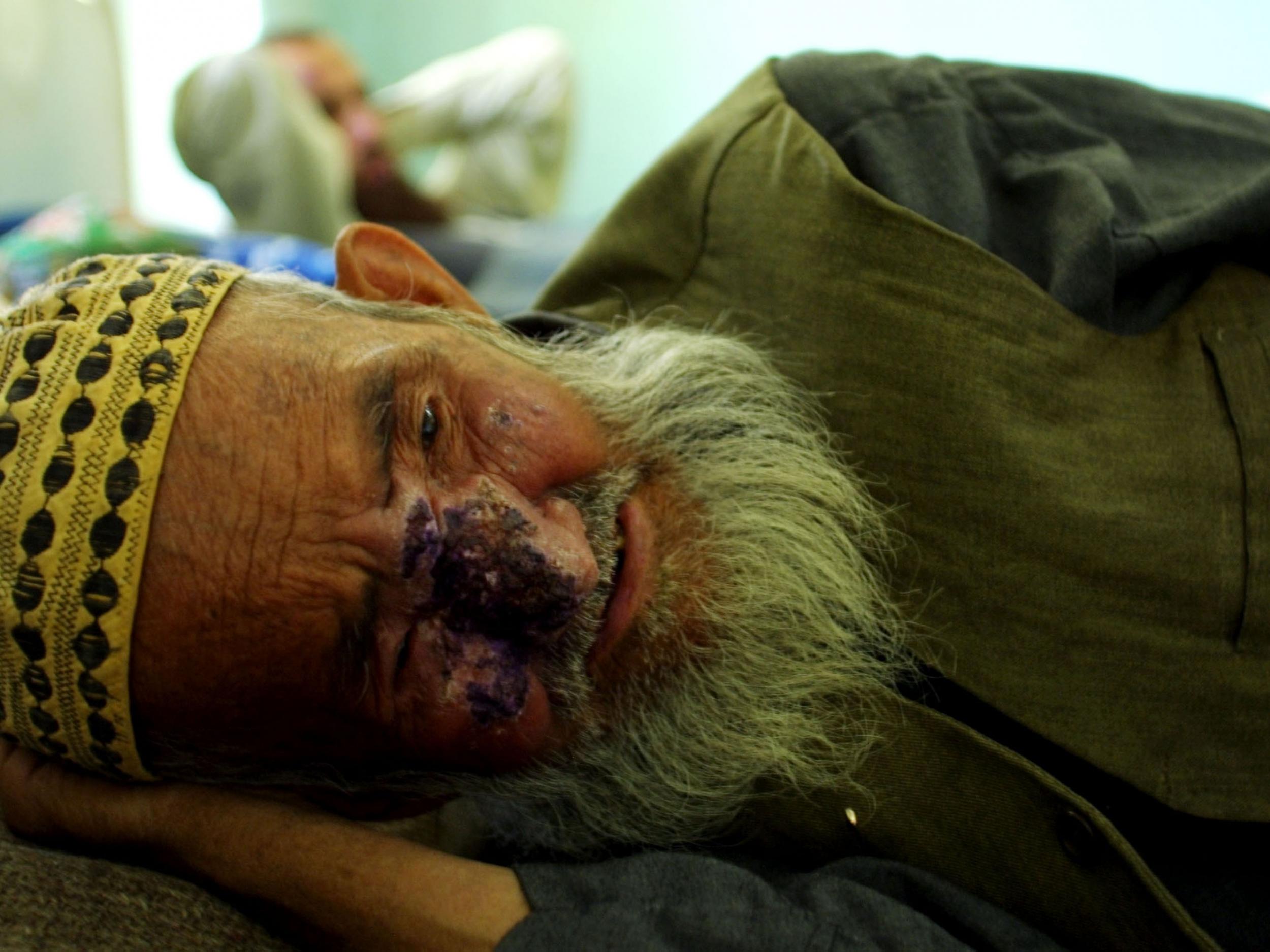Cutaneous leishmaniasis: What is the tropical disease eating its way through the Middle East and can it be stopped?
The condition is prompting serious concerns from health officials

Your support helps us to tell the story
From reproductive rights to climate change to Big Tech, The Independent is on the ground when the story is developing. Whether it's investigating the financials of Elon Musk's pro-Trump PAC or producing our latest documentary, 'The A Word', which shines a light on the American women fighting for reproductive rights, we know how important it is to parse out the facts from the messaging.
At such a critical moment in US history, we need reporters on the ground. Your donation allows us to keep sending journalists to speak to both sides of the story.
The Independent is trusted by Americans across the entire political spectrum. And unlike many other quality news outlets, we choose not to lock Americans out of our reporting and analysis with paywalls. We believe quality journalism should be available to everyone, paid for by those who can afford it.
Your support makes all the difference.A tropical parasitic disease causing serious disfiguration is sweeping across the Middle East. Cutaneous leishmaniasis has been common in Syria for centuries but recent social unrest and breakdown in the healthcare system have seen it develop into a major epidemic.
The disease is identifiable through vast sores on the skin, which can be both painful and permanently disfiguring.
Research has revealed hundreds of thousands of people are now suffering from the condition in refugee camps or trapped in conflict zones. It is thought close proximity caused by cramped conditions is facilitating the disease’s spread, compounded by lack of healthcare structures due to civil unrest and societal breakdown amid the on-going conflict and mass displacement.
What is it?
Also known as 'aleppo evil', cutaneous leishmaniasis is a tropical disease caused by a parasite in the blood stream. It is transmitted from person to person through sand fly bites, which are common in the Middle East.
Other forms exist with varying severity. Visceral leishmaniasis is the most severe form and results in fever, as well as enlargement of the liver and spleen. It can be fatal if left untreated. Mucocutaneous leishmaniasis eats away at the membranes of the nose, mouth and throat.

Where is it?
Scientists have warned it is multiplying rapidly in Syria with hundreds of thousands of cases suspected. In Lebanon, there were six reported cases between 2000 and 2012, by comparison 1,033 cases were reported in 2013 alone.
Cases have also been reported in Turkey, Jordan, Eastern Libya and Yemen.
What does it do?
It causes large open sores on the skin. The sores are painful and often lead to permanent disfiguration. The sores are also vulnerable to secondary infection, spreading further disease.
Why is it spreading now?
Previously the disease has been largely contained to Syria. However, amid societal breakdown due to conflict there, it has increased. Lack of healthcare resources means the condition has not been treated and as people have become trapped in conflict zones they have increased in close contact with other people, further spreading the disease. Poverty and malnutrition, as well as lack of access to clean water, may be further exasperating the situation.
It appears to have spread outside of Syria partly due to refugees fleeing the area. Refugee camps often involve living in close quarters with strangers, without medical treatment facilities beyond those which can provide emergency or basic care.
How much do we know about it?
An incomplete picture of the disease is available due to the chaotic situation in Syria and in refugee camps. Peter Hotez, dean of the US National School of Tropical Medicine, told Nature Middle East: “It's nearly impossible to have on the ground tropical disease experts and epidemiologists in Syria, Iraq, eastern Libya so we are only getting glimpses of the situation from refugees fleeing the conflict zones and going to camps in Jordan, Lebanon, Turkey.”

Can it be stopped?
Conditions are very difficult for both doctors and public health professionals to access affected people and treat them in the hope of containment. Scientists say early intervention is key and have called on international health organisations and governments to conduct a combined effort to improve diagnosis and treatment urgently.
Join our commenting forum
Join thought-provoking conversations, follow other Independent readers and see their replies
Comments